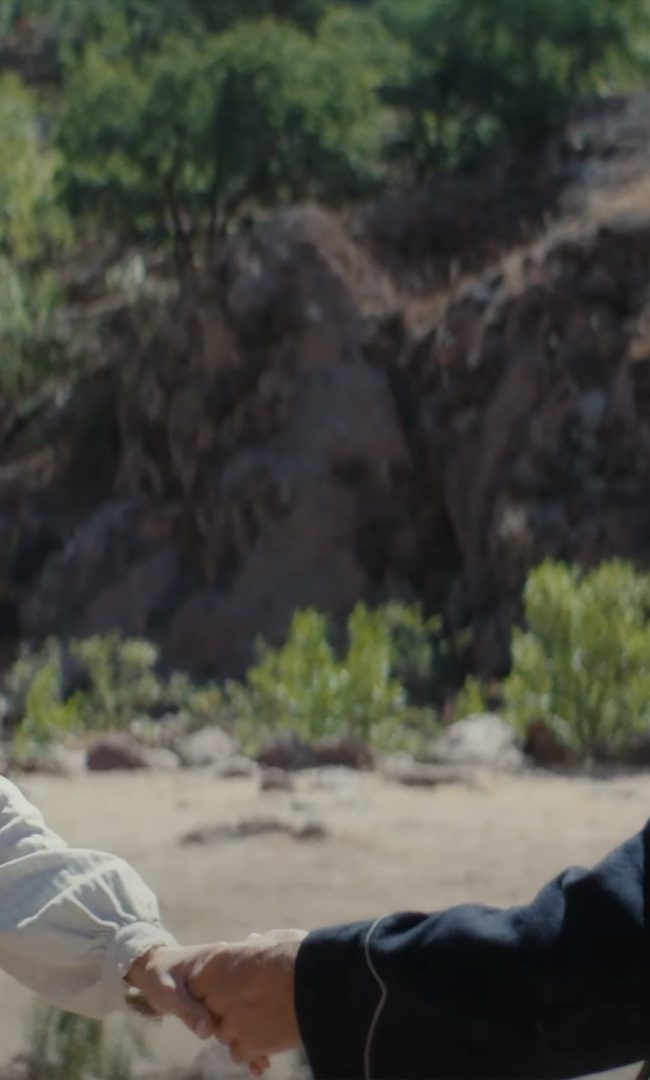Including two titles I’d seen before the 2015 SXSW Film Festival kicked off (read my reviews of Western and Entertainment if you haven’t already), I managed to catch 22 features this year. Which is to say, not a pathetic number but, cinemasochist that I am, that’s not a nearly large enough number to feel proud of myself either. And yet, based on the staggeringly wide stylistic breadth of these 22 movies alone, I would say that 2015 was an exceptionally strong year for Janet Pierson, Jarod Neece, Jim Kolmar, Claudette Godfrey, and the rest of the SXSW Film team. Every year, programmers are at the mercy of the filmmakers that submit new work. Based on the way this year has gone so far, it seems that filmmakers have risen to the occasion. Here are my thoughts on what I saw…
NOT WORLD PREMIERES SEEN FOR THE FIRST TIME
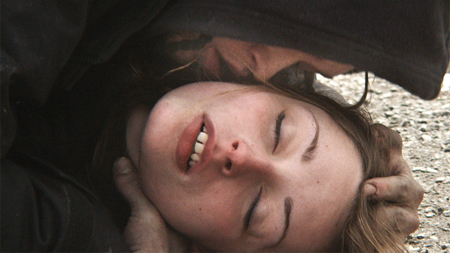 Heaven Knows What (Josh and Benny Safdie, 93m) — Let’s start this fest wrap-up with a hyperbolic bang: Josh and Benny Safdie’s most assured work to date features one of the most virtuosic opening credit sequences in cinema history. I had the feeling watching it, as Paul Grimstad’s I’m-gonna-make-you-brown-your-drawers score thundered through the speakers, that I might die watching this movie. It’s not just the opening either, for a sense of palpable live-wire danger permeates every single one of Sean Price Williams’ docu-realistic frames, as we watch real junkies and one actor who sure seems like a real junky (Caleb Landry Jones) stumble around New York City looking for their next fix. But to call them “real junkies” undercuts the bona fide acting on display. Arielle Holmes and Buddy Durress deliver performances, they’re just so convincing that it’s hard to know where the acting ends and living begins. This was obviously the point, but it’s a point that’s much easier said than done. Working with Frownland’s Ronald Bronstein (co-writer, co-editor), the Safdie Brothers have upped their game in a major way by keeping it frighteningly real.
Heaven Knows What (Josh and Benny Safdie, 93m) — Let’s start this fest wrap-up with a hyperbolic bang: Josh and Benny Safdie’s most assured work to date features one of the most virtuosic opening credit sequences in cinema history. I had the feeling watching it, as Paul Grimstad’s I’m-gonna-make-you-brown-your-drawers score thundered through the speakers, that I might die watching this movie. It’s not just the opening either, for a sense of palpable live-wire danger permeates every single one of Sean Price Williams’ docu-realistic frames, as we watch real junkies and one actor who sure seems like a real junky (Caleb Landry Jones) stumble around New York City looking for their next fix. But to call them “real junkies” undercuts the bona fide acting on display. Arielle Holmes and Buddy Durress deliver performances, they’re just so convincing that it’s hard to know where the acting ends and living begins. This was obviously the point, but it’s a point that’s much easier said than done. Working with Frownland’s Ronald Bronstein (co-writer, co-editor), the Safdie Brothers have upped their game in a major way by keeping it frighteningly real.
NEW MOVIES SEEN FOR THE FIRST TIME
 KRISHA (Trey Edward Shults, 83m) — If the idea of Robert Altman’s 3 Women invading a 21st century Thanksgiving weekend family reunion sounds enticing to you, then you’ve come to the right place with Trey Edward Shults’ debut feature (which took home both the Narrative Grand Jury Prize and Audience Award). Bursting with style—zooms, atypical camera moves, Brian McOmber’s percussive score—KRISHA is also filled with great performances; namely by the film’s lead, Krisha Fairchild, who proves that the world is desperately lacking movies featuring older female protagonists. In a taut 83 minutes, Shults manages to elevate beyond his hyper-specific setting to present a universal portrait of that family member who just cannot pull it together. More than anything, KRISHA electrified me so much because it took a scenario that a lesser director would film as two-dimensional live theater and leave it at that, while Shults and his technical collaborators never forgot for one second that they were working in the realm of cinema.
KRISHA (Trey Edward Shults, 83m) — If the idea of Robert Altman’s 3 Women invading a 21st century Thanksgiving weekend family reunion sounds enticing to you, then you’ve come to the right place with Trey Edward Shults’ debut feature (which took home both the Narrative Grand Jury Prize and Audience Award). Bursting with style—zooms, atypical camera moves, Brian McOmber’s percussive score—KRISHA is also filled with great performances; namely by the film’s lead, Krisha Fairchild, who proves that the world is desperately lacking movies featuring older female protagonists. In a taut 83 minutes, Shults manages to elevate beyond his hyper-specific setting to present a universal portrait of that family member who just cannot pull it together. More than anything, KRISHA electrified me so much because it took a scenario that a lesser director would film as two-dimensional live theater and leave it at that, while Shults and his technical collaborators never forgot for one second that they were working in the realm of cinema.
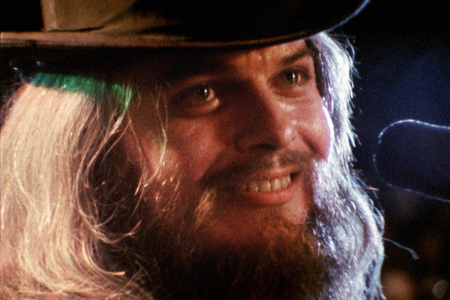 A Poem Is A Naked Person (Les Blank, 89m) — This lost Les Blank gem from 1972 received its official world premiere at this year’s fest, and it did not disappoint. Watching Leon Russell and George Jones and Willie Nelson and hillbilly kids hunt catfish on grainy 16mm film gave me a less than inspiring feeling that this was the type of textured world I wish we were still living in. But we’re not. Oh well. Now that it appears this film is getting a legitimate theatrical and home video release, we’ll at least have it to remind us of how things wuz.
A Poem Is A Naked Person (Les Blank, 89m) — This lost Les Blank gem from 1972 received its official world premiere at this year’s fest, and it did not disappoint. Watching Leon Russell and George Jones and Willie Nelson and hillbilly kids hunt catfish on grainy 16mm film gave me a less than inspiring feeling that this was the type of textured world I wish we were still living in. But we’re not. Oh well. Now that it appears this film is getting a legitimate theatrical and home video release, we’ll at least have it to remind us of how things wuz.
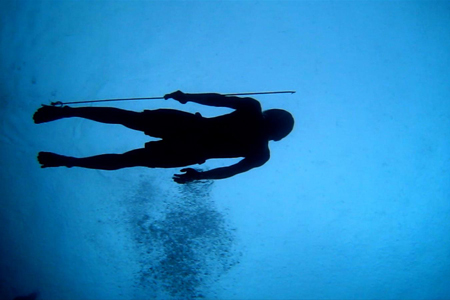 Sailing A Sinking Sea (Olivia Wyatt, 64m) — Olivia Wyatt’s mesmerizing tone poem about the seafaring Moken people of the Myanmar and Thailand region is an exhilarating reminder that invigorating, life-affirming experimental cinema is alive and well. Though Wyatt ends her film on a somber note, with text that warns of the Moken culture’s impending extinction, her consistently vibrant sound-and-image-scape makes Sailing A Sinking Sea feel more like a celebration than a lament (at least that’s how I took it). This is the exact type of film that tends to get overlooked in a frenzied festival such as SXSW—“Hey, you guys wanna go see that 64-minute experimental film or should we just pound some margaritas and catch The Breakfast Club instead?”—but for my money, Sailing A Sinking Sea is a gleaming example of why one should choose ambitious independent cinema every single time.
Sailing A Sinking Sea (Olivia Wyatt, 64m) — Olivia Wyatt’s mesmerizing tone poem about the seafaring Moken people of the Myanmar and Thailand region is an exhilarating reminder that invigorating, life-affirming experimental cinema is alive and well. Though Wyatt ends her film on a somber note, with text that warns of the Moken culture’s impending extinction, her consistently vibrant sound-and-image-scape makes Sailing A Sinking Sea feel more like a celebration than a lament (at least that’s how I took it). This is the exact type of film that tends to get overlooked in a frenzied festival such as SXSW—“Hey, you guys wanna go see that 64-minute experimental film or should we just pound some margaritas and catch The Breakfast Club instead?”—but for my money, Sailing A Sinking Sea is a gleaming example of why one should choose ambitious independent cinema every single time.
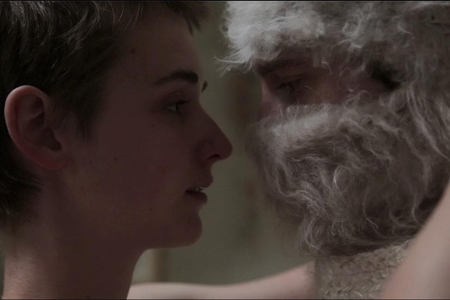 Funny Bunny (Alison Bagnall, 85m) — I dare you to watch this back-to-back with Jason Banker’s Felt, and not just because Kentucker Audley is in both of them. Funny Bunny totally sideswiped me (it left my sister an absolute wreck, but she’s a therapist and deals with this material on an hourly basis). At first, I was simply taken by the grounded whimsy on display and enjoyed basking in my full-fledged cine-crushes on all three of Bagnall’s leads: Joslyn Jensen, Olly Alexander, Audley. I’m so smitten with these performers, in fact, that midway through I remember thinking that I’d lost all perspective on the movie itself, if it was “working” or “not working” in a narrative sense. But not long after that came a shot in which Alexander’s character Titty was curled up in a pigpen holding onto a baby pig, and in that moment, my body was pierced and I began to understand what this movie was really about. Sure enough, a few scenes later, that point was driven home even further. Leaving Funny Bunny, I had a crystal clear thought: The real question/discussion isn’t if gay people should be allowed to get married, it’s if heterosexual people should be allowed to have children.
Funny Bunny (Alison Bagnall, 85m) — I dare you to watch this back-to-back with Jason Banker’s Felt, and not just because Kentucker Audley is in both of them. Funny Bunny totally sideswiped me (it left my sister an absolute wreck, but she’s a therapist and deals with this material on an hourly basis). At first, I was simply taken by the grounded whimsy on display and enjoyed basking in my full-fledged cine-crushes on all three of Bagnall’s leads: Joslyn Jensen, Olly Alexander, Audley. I’m so smitten with these performers, in fact, that midway through I remember thinking that I’d lost all perspective on the movie itself, if it was “working” or “not working” in a narrative sense. But not long after that came a shot in which Alexander’s character Titty was curled up in a pigpen holding onto a baby pig, and in that moment, my body was pierced and I began to understand what this movie was really about. Sure enough, a few scenes later, that point was driven home even further. Leaving Funny Bunny, I had a crystal clear thought: The real question/discussion isn’t if gay people should be allowed to get married, it’s if heterosexual people should be allowed to have children.
 Uncle Kent 2 (Todd Rohal, 73m) — One need not be familiar with the original Uncle Kent in order to appreciate Todd Rohal’s latest off-the-rails cine-romp. For the first 10 or so minutes, it seems that we are indeed back in the handi-cam, white-walled Uncle Kent 1 world of Joe Swanberg and Kent Osborne, but when Swanberg frees himself from the project and gives Osborne his blessing to soldier on, Rohal steps in to deliver a shriek-inducing Titty Twister to the type of unimaginative micro-budget videography that is as destructive to ambitious cinema as gimungous-budget superhero reboots. As David Lynch and Barry Gifford were to Lost Highway, so Todd Rohal and Kent Osborne are to Uncle Kent 2. At best, you will never hear Swing Out Sister’s “Breakout” the same again. At worst—one week later I am still afflicted—you will never stop hearing “Breakout” in your head every single second until you die.
Uncle Kent 2 (Todd Rohal, 73m) — One need not be familiar with the original Uncle Kent in order to appreciate Todd Rohal’s latest off-the-rails cine-romp. For the first 10 or so minutes, it seems that we are indeed back in the handi-cam, white-walled Uncle Kent 1 world of Joe Swanberg and Kent Osborne, but when Swanberg frees himself from the project and gives Osborne his blessing to soldier on, Rohal steps in to deliver a shriek-inducing Titty Twister to the type of unimaginative micro-budget videography that is as destructive to ambitious cinema as gimungous-budget superhero reboots. As David Lynch and Barry Gifford were to Lost Highway, so Todd Rohal and Kent Osborne are to Uncle Kent 2. At best, you will never hear Swing Out Sister’s “Breakout” the same again. At worst—one week later I am still afflicted—you will never stop hearing “Breakout” in your head every single second until you die.
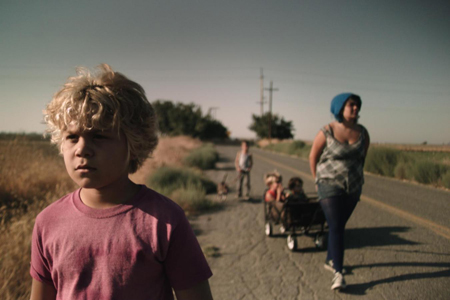 God Bless The Child (Robert Machoian and Rodrigo Ojeda-Beck, 94m) — If the curbside pitch of “Nobody Knows meets Gummo” tickles your fancy, then you need to see this movie as soon as humanly possible. Machoian and Ojeda-Beck’s episodic portrait of a family of five children left alone doesn’t pass any harsh judgments or make any grand statements about parental neglect, for it’s filled with such an onslaught of “how did they capture that?!” moments that for me it stood tallest as a celebration of the kind of filmmaking that gleefully blurs the line between fiction and nonfiction. A tip for watching God Bless The Child: Don’t worry about where things are headed in a narrative sense, simply sit back and enjoy this collection of visceral, intimate moments.
God Bless The Child (Robert Machoian and Rodrigo Ojeda-Beck, 94m) — If the curbside pitch of “Nobody Knows meets Gummo” tickles your fancy, then you need to see this movie as soon as humanly possible. Machoian and Ojeda-Beck’s episodic portrait of a family of five children left alone doesn’t pass any harsh judgments or make any grand statements about parental neglect, for it’s filled with such an onslaught of “how did they capture that?!” moments that for me it stood tallest as a celebration of the kind of filmmaking that gleefully blurs the line between fiction and nonfiction. A tip for watching God Bless The Child: Don’t worry about where things are headed in a narrative sense, simply sit back and enjoy this collection of visceral, intimate moments.
 The Grief of Others (Patrick Wang, 102m) — No one else in modern American cinema is making movies like Patrick Wang. As he came to cinema late (and from the stage), Wang’s voice is a truly unique blend of filmmaking innocence mixed with an ambition that invites most direct comparisons to Bergman and Tarkovsky. His follow-up to In The Family has splashes of humor but remains a Firmly Adult Drama, an adaptation of Leah Hager Cohen’s novel that follows a family still coming to grips with the loss of their newborn child. Shooting on celluloid and using the frame like a visual artist, Wang proves once again that he has a voice unlike any other. More than that, for me it was just so incredibly refreshing to encounter a work like this at an “edgy, hip” film festival in the year 2015.
The Grief of Others (Patrick Wang, 102m) — No one else in modern American cinema is making movies like Patrick Wang. As he came to cinema late (and from the stage), Wang’s voice is a truly unique blend of filmmaking innocence mixed with an ambition that invites most direct comparisons to Bergman and Tarkovsky. His follow-up to In The Family has splashes of humor but remains a Firmly Adult Drama, an adaptation of Leah Hager Cohen’s novel that follows a family still coming to grips with the loss of their newborn child. Shooting on celluloid and using the frame like a visual artist, Wang proves once again that he has a voice unlike any other. More than that, for me it was just so incredibly refreshing to encounter a work like this at an “edgy, hip” film festival in the year 2015.
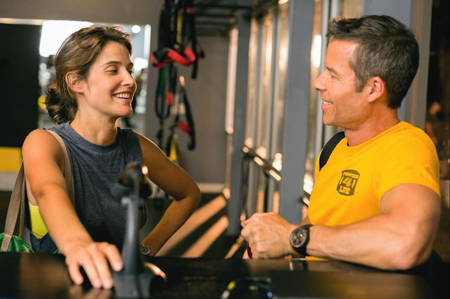 Results (Andrew Bujalski, 105m) — I confess to being worried going into Results that I was going to feel an inevitable letdown after Computer Chess, which is one of my favorite motion pictures of the past several years. Yet only moments into this off-kilter rom-com, I felt a burst of relief, as it became quite clear to me that even when he’s working with a more superficially traditional script and employing recognizable name actors, Andrew Bujalski simply cannot make a “normal” movie. Though Guy Pearce and Cobie Smulders bring the goods (particularly Smulders, who had the trickiest job in bringing her character to convincing life), Results is without a doubt Kevin Corrigan’s show. Corrigan has always been an actor that I am drawn to even when he’s doing nothing, but here, Bujalski gives him the time and space—and dialogue—to be a leading man and leave an indelible mark.
Results (Andrew Bujalski, 105m) — I confess to being worried going into Results that I was going to feel an inevitable letdown after Computer Chess, which is one of my favorite motion pictures of the past several years. Yet only moments into this off-kilter rom-com, I felt a burst of relief, as it became quite clear to me that even when he’s working with a more superficially traditional script and employing recognizable name actors, Andrew Bujalski simply cannot make a “normal” movie. Though Guy Pearce and Cobie Smulders bring the goods (particularly Smulders, who had the trickiest job in bringing her character to convincing life), Results is without a doubt Kevin Corrigan’s show. Corrigan has always been an actor that I am drawn to even when he’s doing nothing, but here, Bujalski gives him the time and space—and dialogue—to be a leading man and leave an indelible mark.
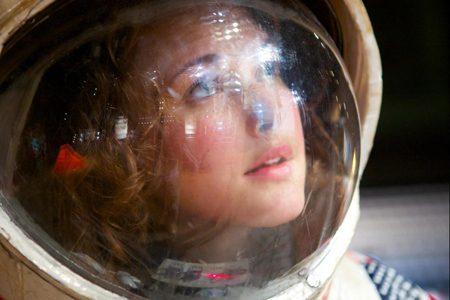 A Space Program (Van Neistat, 72m) — Based on artist Tom Sachs’ 2012 art installation, Van Neistat and Sachs’ filmic adaptation is a hilarious ode to bricolage (i.e., something constructed or created from a diverse range of available things). The handmade nature of Neistat’s film perfectly matches Sachs’ concerns with materials, materials, materials, as his assembled team of astronauts make their way to Mars and back. All of this filmed space travel happens in a studio, of course, though as the astronauts’ “journey” continues, I confess to getting freaky Room 237 vibes and seeing our actual Earthly reality as a hodge-podge cobbling together of garage scraps and basement detritus. Which I guess it maybe is?
A Space Program (Van Neistat, 72m) — Based on artist Tom Sachs’ 2012 art installation, Van Neistat and Sachs’ filmic adaptation is a hilarious ode to bricolage (i.e., something constructed or created from a diverse range of available things). The handmade nature of Neistat’s film perfectly matches Sachs’ concerns with materials, materials, materials, as his assembled team of astronauts make their way to Mars and back. All of this filmed space travel happens in a studio, of course, though as the astronauts’ “journey” continues, I confess to getting freaky Room 237 vibes and seeing our actual Earthly reality as a hodge-podge cobbling together of garage scraps and basement detritus. Which I guess it maybe is?
 Sweaty Betty (Joseph Frank and Zachary Reed, 95m) — On the complete and utter polar opposite end of the cinematic spectrum of a film like The Grief of Others comes something like Sweaty Betty, a slice-of-life portrait that takes place inside the DC Beltway. Shot on what looks like Hi-8 video and taking a supremely casual approach to its characters and narrative, Sweaty Betty feels like an unearthed home video from 1996. It’s hard for me to write about this movie because it truly doesn’t feel like a “movie,” though I will say that I found it to be quite refreshing in its insistence on capturing downtime in a Maryland/DC area community that typically only makes it onto the screen for reasons of violence and crime. Seriously, though, consider the fact that Sweaty Betty and The Grief of Others were competing against each other in the narrative competition at the 2015 SXSW Film Festival and I dare you not to feel a head-spinning surge of optimism!
Sweaty Betty (Joseph Frank and Zachary Reed, 95m) — On the complete and utter polar opposite end of the cinematic spectrum of a film like The Grief of Others comes something like Sweaty Betty, a slice-of-life portrait that takes place inside the DC Beltway. Shot on what looks like Hi-8 video and taking a supremely casual approach to its characters and narrative, Sweaty Betty feels like an unearthed home video from 1996. It’s hard for me to write about this movie because it truly doesn’t feel like a “movie,” though I will say that I found it to be quite refreshing in its insistence on capturing downtime in a Maryland/DC area community that typically only makes it onto the screen for reasons of violence and crime. Seriously, though, consider the fact that Sweaty Betty and The Grief of Others were competing against each other in the narrative competition at the 2015 SXSW Film Festival and I dare you not to feel a head-spinning surge of optimism!
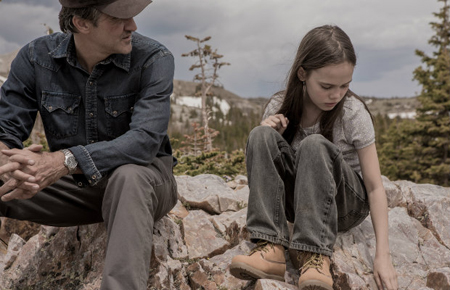 Lamb (Ross Partridge, 93m) — I cannot recall encountering another movie like Ross Partridge’s long-gestating feature debut, which presents itself so earnestly and non-judgmentally and yet maintains an incredibly loaded and complicated tone. One week later, my head is still rattling. Lamb is like an everlasting gobstopper of ethical complexity. Partridge plays David Lamb, a cipher of a character who befriends the 11-year-old Tommie (Oona Lawrence), who then keeps befriending her to the point where they go on a road trip to his family cabin to keep… being friends? Having not read Bonnie Nadzam’s novel upon which his film is based, it’s hard to know what new components Partridge brought to the table, or if his adaptation is merely a successful transfer of the moral ambiguity from the page to the screen. One thing’s for sure: Lamb has a tone unto itself, and it’s guaranteed to spark a fiery discussion from anyone who sees it.
Lamb (Ross Partridge, 93m) — I cannot recall encountering another movie like Ross Partridge’s long-gestating feature debut, which presents itself so earnestly and non-judgmentally and yet maintains an incredibly loaded and complicated tone. One week later, my head is still rattling. Lamb is like an everlasting gobstopper of ethical complexity. Partridge plays David Lamb, a cipher of a character who befriends the 11-year-old Tommie (Oona Lawrence), who then keeps befriending her to the point where they go on a road trip to his family cabin to keep… being friends? Having not read Bonnie Nadzam’s novel upon which his film is based, it’s hard to know what new components Partridge brought to the table, or if his adaptation is merely a successful transfer of the moral ambiguity from the page to the screen. One thing’s for sure: Lamb has a tone unto itself, and it’s guaranteed to spark a fiery discussion from anyone who sees it.
 Creative Control (Benjamin Dickinson, 97m) — While seemingly everyone else’s first comparison to Benjamin Dickinson’s near-future cautionary tale of technology gone the full insidious is Black Mirror, for my money what springs to mind is Digital Underground’s prescient 1990 album Sex Packets. What impressed me so much about Dickinson’s follow-up to his haunting First Winter was not its convincing digital effects, but how it managed to be critical and sharp without succumbing to hipster snark.
Creative Control (Benjamin Dickinson, 97m) — While seemingly everyone else’s first comparison to Benjamin Dickinson’s near-future cautionary tale of technology gone the full insidious is Black Mirror, for my money what springs to mind is Digital Underground’s prescient 1990 album Sex Packets. What impressed me so much about Dickinson’s follow-up to his haunting First Winter was not its convincing digital effects, but how it managed to be critical and sharp without succumbing to hipster snark.
 The Jones Family Will Make a Way (Alan Berg, 84m) — Alan Berg delivers a rousing chronicle of Pentecostal Bishop Fred Jones and his quest to spread the word of God by taking his family’s musical act outside the church’s walls and into whatever venues will book him. Bishop Jones finds a champion in cranky music critic Michael Corcoran, whose unwavering belief in the Jones Family’s talent leads to bigger, better, and more complicated things. The scene in which the Jones Family goes into an Austin studio is an instant classic, highlighting the murky divide between getting on stage and giving it all you’ve got versus finding a way to bottle that magic for compact disc—i.e., mainstream, atheistic—consumption.
The Jones Family Will Make a Way (Alan Berg, 84m) — Alan Berg delivers a rousing chronicle of Pentecostal Bishop Fred Jones and his quest to spread the word of God by taking his family’s musical act outside the church’s walls and into whatever venues will book him. Bishop Jones finds a champion in cranky music critic Michael Corcoran, whose unwavering belief in the Jones Family’s talent leads to bigger, better, and more complicated things. The scene in which the Jones Family goes into an Austin studio is an instant classic, highlighting the murky divide between getting on stage and giving it all you’ve got versus finding a way to bottle that magic for compact disc—i.e., mainstream, atheistic—consumption.
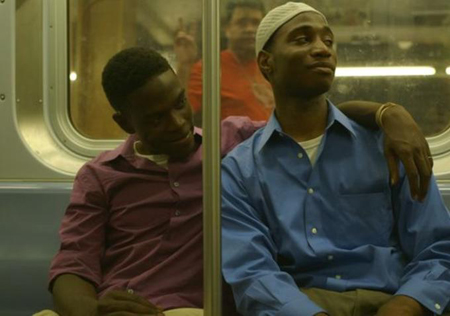 Naz & Maalik (Jay Dockendorf, 85m) — Naz & Maalik is one of those SXSW discoveries that might wear its first-film status on its sleeve more often than not, and yet it still comes out on top due to its compelling lead performances (by Curtiss Cook, Jr. and Kerwin Johnson, Jr.) and an undeniable charm (see: Gimme The Loot). Dockendorf’s drama has a special alchemy—call it fairytale naturalism?—that distinguishes this film and makes him someone to look out for.
Naz & Maalik (Jay Dockendorf, 85m) — Naz & Maalik is one of those SXSW discoveries that might wear its first-film status on its sleeve more often than not, and yet it still comes out on top due to its compelling lead performances (by Curtiss Cook, Jr. and Kerwin Johnson, Jr.) and an undeniable charm (see: Gimme The Loot). Dockendorf’s drama has a special alchemy—call it fairytale naturalism?—that distinguishes this film and makes him someone to look out for.
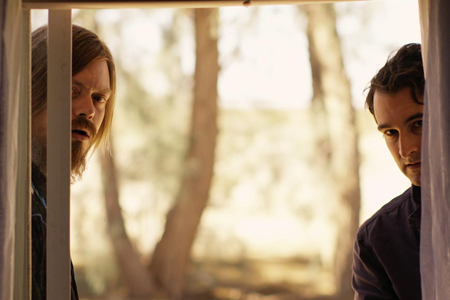 Manson Family Vacation (J. Davis, 85m) — Anchored by strong performances—Linas Phillips and Jay Duplass prove to be a groovy pair—J. Davis’ comedic drama delivers on its why-hasn’t-this-been-done-before set-up. As we’re dealing with Charles Manson here, the movie skirts some ethically dubious terrain, but what’s most impressive is how Phillips and Duplass bring such credible, three-dimensional life to their characters, instilling this film with far more intelligence than one might expect with a premise like this. All one has to do is imagine what the Hollywood version of this movie would look like and Manson Family Vacation becomes that much stronger.
Manson Family Vacation (J. Davis, 85m) — Anchored by strong performances—Linas Phillips and Jay Duplass prove to be a groovy pair—J. Davis’ comedic drama delivers on its why-hasn’t-this-been-done-before set-up. As we’re dealing with Charles Manson here, the movie skirts some ethically dubious terrain, but what’s most impressive is how Phillips and Duplass bring such credible, three-dimensional life to their characters, instilling this film with far more intelligence than one might expect with a premise like this. All one has to do is imagine what the Hollywood version of this movie would look like and Manson Family Vacation becomes that much stronger.
 Barge (Ben Powell, 71m) — For my money, Ben Powell’s documentary portrait of life on a Mississippi River towboat is at its most transcendent when it’s simply capturing the motions of this large barge through its striking natural landscape—call it Peter Hutton’s On River?—but Powell is after something more here. An unhurried introduction to the souls who have found themselves floating down the Mississippi in order to pay the rent, Barge is far less political than Margaret Brown’s 2014 Grand Jury winner The Great Invisible, but there remains a kinship here, a celebration of the beauty and humanity that inhabits this area of the United States.
Barge (Ben Powell, 71m) — For my money, Ben Powell’s documentary portrait of life on a Mississippi River towboat is at its most transcendent when it’s simply capturing the motions of this large barge through its striking natural landscape—call it Peter Hutton’s On River?—but Powell is after something more here. An unhurried introduction to the souls who have found themselves floating down the Mississippi in order to pay the rent, Barge is far less political than Margaret Brown’s 2014 Grand Jury winner The Great Invisible, but there remains a kinship here, a celebration of the beauty and humanity that inhabits this area of the United States.
 One & Two (Andrew Droz Palermo, 90m) — Andrew Droz Palermo worked double-time at this year’s fest, having shot Hannah Fidell’s 6 Years, and though he is the director of a Sundance Grand Jury Prize winner, that film, Rich Hill, was a documentary. One & Two is about as far from nonfiction as a movie can get. An outright fairytale about a brother and sister living inside tall literal walls on a remote farm under the control of their abusive father, Palermo’s drama swings for a similarly tall wall in its production and narrative scope.
One & Two (Andrew Droz Palermo, 90m) — Andrew Droz Palermo worked double-time at this year’s fest, having shot Hannah Fidell’s 6 Years, and though he is the director of a Sundance Grand Jury Prize winner, that film, Rich Hill, was a documentary. One & Two is about as far from nonfiction as a movie can get. An outright fairytale about a brother and sister living inside tall literal walls on a remote farm under the control of their abusive father, Palermo’s drama swings for a similarly tall wall in its production and narrative scope.
I WAS IN THESE BUT I’M GONNA MENTION THEM ANYWAY
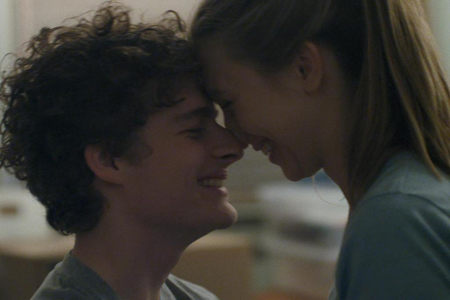 6 Years (Hannah Fidell, 80m) — I feel stupid writing about these movies since I make brief appearances in them, but then again my appearances are so brief that it’s stupider for me to not mention them. I really hope 6 Years does well for itself in the world—with its Netflix deal in place it’s off to a good start—for I love that there is an original young adult movie in the world as opposed to yet another book adaptation.
6 Years (Hannah Fidell, 80m) — I feel stupid writing about these movies since I make brief appearances in them, but then again my appearances are so brief that it’s stupider for me to not mention them. I really hope 6 Years does well for itself in the world—with its Netflix deal in place it’s off to a good start—for I love that there is an original young adult movie in the world as opposed to yet another book adaptation.
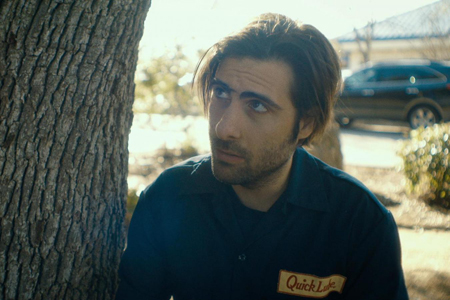 7 Chinese Brothers (Bob Byington, 76m) — Bob Byington’s latest is the sweetest love letter to Jason Schwartzman and his dog Arrow there will ever be, but on deeper reflection it’s much more than that. As someone who has reached a stage in his life where movies about “big” “important” “life-or-death” situations seem, well, frankly, they seem a tad silly, it’s nice to watch a movie by a writer/director who finds humor and drama and import in life’s smaller moments.
7 Chinese Brothers (Bob Byington, 76m) — Bob Byington’s latest is the sweetest love letter to Jason Schwartzman and his dog Arrow there will ever be, but on deeper reflection it’s much more than that. As someone who has reached a stage in his life where movies about “big” “important” “life-or-death” situations seem, well, frankly, they seem a tad silly, it’s nice to watch a movie by a writer/director who finds humor and drama and import in life’s smaller moments.
SHORT FILM ACTION
I didn’t actually get to see any full shorts programs this year, but here are some shorts that I did watch via the screener library and dug in some way, shape, or form…
Bob Spells Backwards
Calls To Okies: The Park Grubbs Story
Darknet Delivery: A Silk Road Story
Hallway
Melville (*a short film ending that packs a feature film wallop)
Pink Grapefruit (*noticeably great editing)
The Samaritans
Spearhunter
Woman Of The World
— Michael Tully








